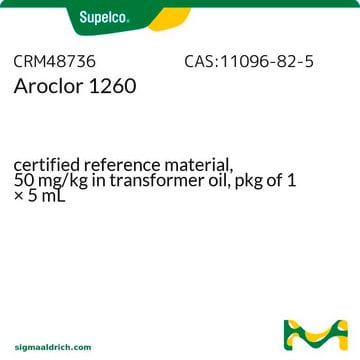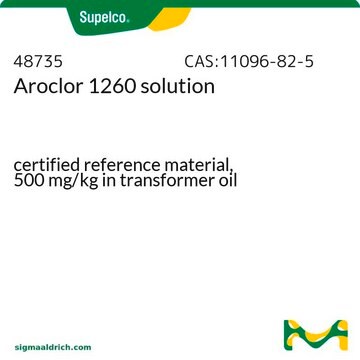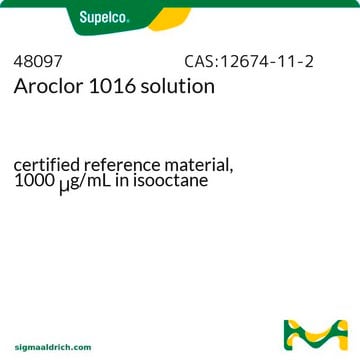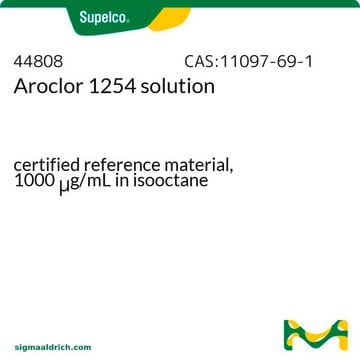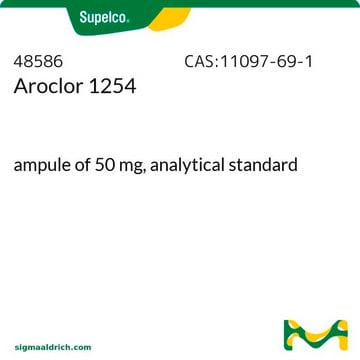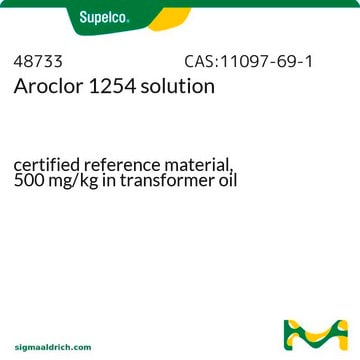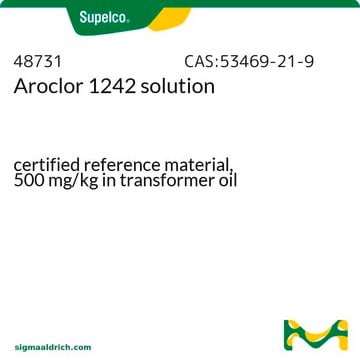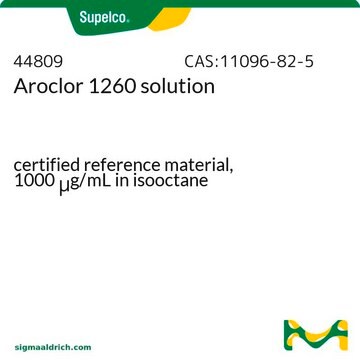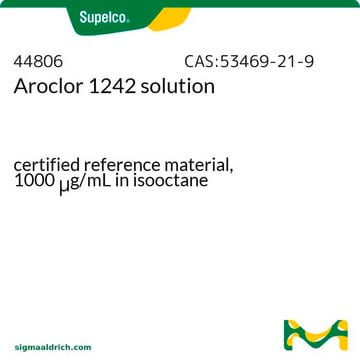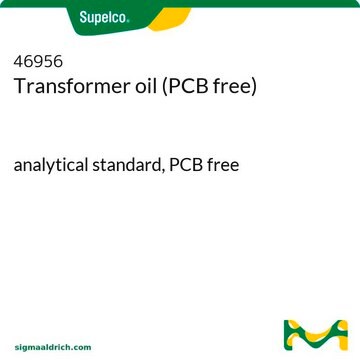48734
Aroclor 1254 solution
certified reference material, 50 mg/kg in transformer oil
About This Item
Produits recommandés
Qualité
certified reference material
TraceCERT®
Niveau de qualité
Gamme de produits
TraceCERT®
CofA (certificat d'analyse)
current certificate can be downloaded
Conditionnement
ampule of 5 mL
Concentration
50 mg/kg in transformer oil
Technique(s)
HPLC: suitable
gas chromatography (GC): suitable
Application(s)
environmental
Format
single component solution
Température de stockage
2-30°C
Chaîne SMILES
Clc1c(c(ccc1Cl)c2c(c(ccc2)Cl)Cl)Cl
InChI
1S/C12H5Cl5/c13-8-3-1-2-6(10(8)15)7-4-5-9(14)12(17)11(7)16/h1-5H
Clé InChI
AUGNBQPSMWGAJE-UHFFFAOYSA-N
Vous recherchez des produits similaires ? Visite Guide de comparaison des produits
Application
Autres remarques
Informations légales
Vous ne trouvez pas le bon produit ?
Essayez notre Outil de sélection de produits.
Mention d'avertissement
Danger
Mentions de danger
Conseils de prudence
Classification des risques
Aquatic Chronic 2 - Carc. 1B - STOT RE 2
Code de la classe de stockage
6.1C - Combustible, acute toxic Cat.3 / toxic compounds or compounds which causing chronic effects
Classe de danger pour l'eau (WGK)
WGK 3
Point d'éclair (°F)
Not applicable
Point d'éclair (°C)
Not applicable
Équipement de protection individuelle
Eyeshields, Faceshields, Gloves, type ABEK (EN14387) respirator filter
Faites votre choix parmi les versions les plus récentes :
Déjà en possession de ce produit ?
Retrouvez la documentation relative aux produits que vous avez récemment achetés dans la Bibliothèque de documents.
Les clients ont également consulté
Notre équipe de scientifiques dispose d'une expérience dans tous les secteurs de la recherche, notamment en sciences de la vie, science des matériaux, synthèse chimique, chromatographie, analyse et dans de nombreux autres domaines..
Contacter notre Service technique
